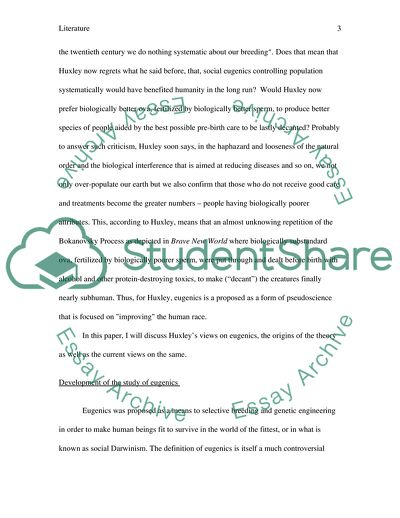Cite this document
(Quality, Quantity, Morality - Eugenics in Brave New World Revisited by Research Proposal, n.d.)
Quality, Quantity, Morality - Eugenics in Brave New World Revisited by Research Proposal. https://studentshare.org/literature/1713905-rearch-paper-base-on-aldous-huxleys-brave-new-world-revisited
Quality, Quantity, Morality - Eugenics in Brave New World Revisited by Research Proposal. https://studentshare.org/literature/1713905-rearch-paper-base-on-aldous-huxleys-brave-new-world-revisited
(Quality, Quantity, Morality - Eugenics in Brave New World Revisited by Research Proposal)
Quality, Quantity, Morality - Eugenics in Brave New World Revisited by Research Proposal. https://studentshare.org/literature/1713905-rearch-paper-base-on-aldous-huxleys-brave-new-world-revisited.
Quality, Quantity, Morality - Eugenics in Brave New World Revisited by Research Proposal. https://studentshare.org/literature/1713905-rearch-paper-base-on-aldous-huxleys-brave-new-world-revisited.
“Quality, Quantity, Morality - Eugenics in Brave New World Revisited by Research Proposal”. https://studentshare.org/literature/1713905-rearch-paper-base-on-aldous-huxleys-brave-new-world-revisited.


